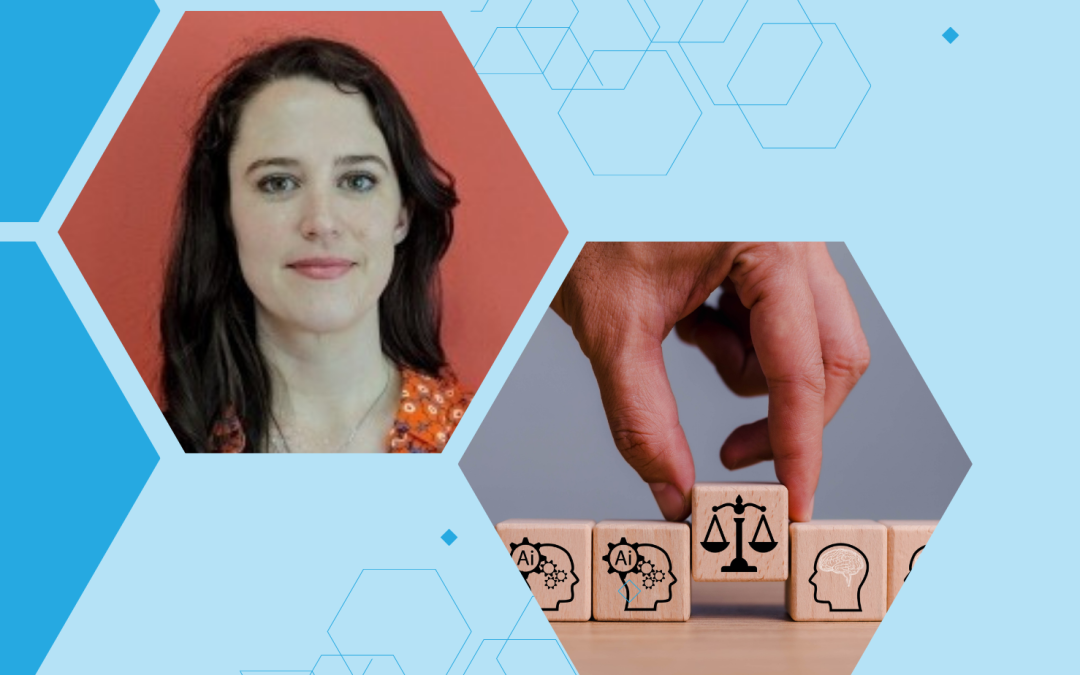By Paul Anderson
Alice Grundy was our guest speaker for an event hosted by EdNSW on 24 October 2023 (rescheduled from 3 October). Our topic was artificial intelligence (AI) and editing: where we are now and where we may be headed.
Alice is a book editor and has taught and researched editing. She has worked in trade publishing and is completing a PhD on Australian editing and publishing history at the Australian National University (ANU). Her presentation drew on all this expertise to show how far we are (or might be) from AI replicating human editorial labour. “There are very many things in the editorial realm that AI will be able to do and, in some instances, I think would be able to do better than humans,” Alice said, “but don’t worry … [there are] things that I think AI can’t currently do and some things that I think it won’t ever be able to do.”
Where are we now?
AI-generated text may only be as good as the prompts used in its creation. It is teachable, to a point, but can sometimes result in witless “algorithmic fabrication (aka BS)”. In fact, this was a “tell” for detecting the use of AI when Alice marked students’ work. “Most universities that I know of at the moment say it’s okay for students to use [AI] … so long as they declare that use,” and Alice thinks that’s practical. The University of Sydney (USYD), for example, has resources to support students’ use of AI responsibly and productively.
Therefore authors still need editors, even if they use large language models (LLM) such as OpenAI’s ChatGPT in their writing practice. But what about the ethics of AI using existing works? Alice is “terrified” at the self-defeating prospect of editors, and others, unwittingly training LLMs. AI’s phenomenal capacity to quickly change and develop and learn is “really worrying” to her.
Where have we come from (editing fiction)?
Alice talked stirringly about literary production. Editors and publishers “consecrate, proselytise, [and] redeem” authors and their works. They also “advocate, intervene, [and] assist” to use less ecclesiastical language. All this invaluable editorial labour requires a certain human intelligence and, on occasion, personal charisma (think: Beatrice Davis).
Alice posits that editors act as “social barometers” for authors and that these editor–author interactions are irreplaceable. For her PhD, she chose six case studies from the Australian canon from the second half of the twentieth century and analysed the big picture effects that editing had on particular works. Alice dipped into one of these in her presentation: Australian author Thea Astley’s collaboration with editor Meredith Rose on The Multiple Effects of Rainshadow, a novel published in 1996. There is a consensus that Astley became increasingly progressive in her representation of First Nations characters over the long course of her writing life. In her research, Alice found that Rose in particular helped Astley reach that position. It was Rose’s suggestion that the First Nations character Manny Cooktown, originally written in the first-person, be changed to a third-person point of view. “It’s my contention that by increasing the distance between the author and the character … Rose was helping Astley move with the times really.”
Could AI ever do the kind of sensitivity read that editors perform? Alice thinks not, for now at least. “These are the kinds of social barometer roles … that will be much more difficult for AI to embody either in the near future or even a little bit further away than that.”
Alice’s doctoral research formed the basis of her monograph Editing Fiction: Three Case Studies from Post-war Australia, published by Cambridge University Press in 2022. She modestly described this “little book” as her “COVID baby”.
Where we may be headed.
Alice “thinks that we are likely some way from [AI] usurping all editing functions”. Troubled ethics, legal concerns and cultural limitations are among the biggest issues she cited. Not least, editing practices “[are] going to take some time to move over” for commercial-in-confidence, confidential and sensitive content, such as government publications.
Thank you, Alice, for sharing some of your editing expertise and views on AI with us.
This presentation is a good companion to the other AI-themed speaker events hosted by EdsQ (When it comes to artificial intelligence, there’s much for editors to be optimistic about) and EdSA (Who said there’s no AI in editing?) earlier this year.
Access to the recording of the presentation will be available to purchase via the IPEd events page until 28 January 2024 (or free if you paid to attend).

